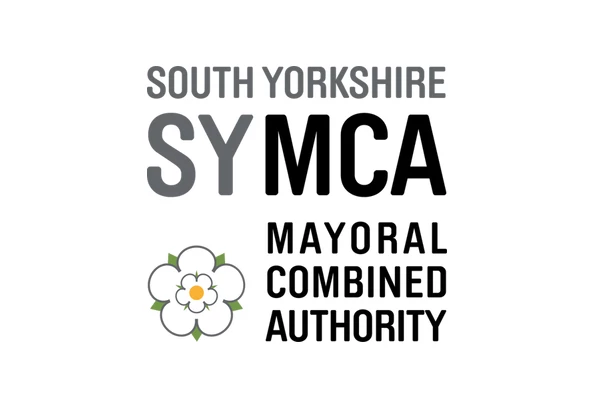
Leeds City Council forced to make £76m in budget cuts over the next year
The Leader of Leeds City Council has voiced her concern of the city’s future as there will be another year of significant funding cuts to council budgets.
Councillor Judith Blake has stated that the lack of investment by the government in comprehensive flood defences in 2011 shows the potential devastating impact of the under-resourcing of public services.
The council now has to deliver savings of over £76m for 2016/17.
The budget proposals, which were released today ahead of next week’s executive board meeting at the Civic Hall (Wednesday 10 February), details the financial position for next year, which includes the council receiving approximately £35m less in core funding from the government.
In addition, the council is also facing a reduction of nearly £13m in the business rates it collects due to a high level of appeals being determined by the Valuation Office. Together with rising costs and demand for services, it leaves the council needing to find savings in excess of £76m next year.
Councillor Judith Blake said: “ÂSadly our great city is still dealing with the devastating impact and damage of the Boxing Day floods. We are now facing another major challenge in terms of how to handle the ongoing cuts to our funding which this year means we need to make savings of more than £76m.
“Having seen at first-hand the effect of the failure to fund the necessary level of flood defences the city needs, it is a real concern that far less money is available at a time when demand for public services is on the increase. As with the flood defence budgets, under-resourcing public services is a false economy that stores up problems for the future.
“The long-term need for services such as health and social care will only increase as preventative services, such as those funded through public health budgets, are drastically cut.
“ÂWe have seen in recent weeks council leaders from across the political divide, in all areas of the country, speak out against the effect of cuts on local government, which I think shows the cuts are now pushing services to their breaking point.
“Again Leeds has been hit harder than many other local authority areas and the national average. This cannot be fair, year after year. No-one should be under any illusions that this is going to be anything other than an incredibly difficult time for delivering much-needed public services. That said, as a council we will do all we can to minimise the effect of the cuts on vulnerable people. Our aim is for Leeds to remain a caring and compassionate city built on a strong economy focused on tackling inequality and promoting opportunity for all.”
The reduction of government funding continues the trend which has seen Leeds City Council receive more than £180m less in core funding, a drop of more than 40% since 2010.
In public health funding, the council has already seen a reduction of £2.8m this year. The government has confirmed further cuts are to be made over the next five years, with the council estimating it will have £25m less to spend on public health priorities in Leeds.
In order to meet the funding gap, all areas of the council are expected to make savings and efficiencies, although services for vulnerable young and older people will be prioritised with funding in these two areas accounting for approximately two-thirds of the council’s overall budget for 2016/17.
Council tax is proposed to rise in Leeds next year by 1.99%, with an additional 2% ‘precept’Â as suggested by the government being used to provide support for essential adult social care services.
Social housing rents will reduce by 1% next year in line with government policy, while there will be a general rise in council fees and charges of approximately 3% in addition to specific increases in some areas.
The council itself will continue to get smaller in size, with a reduction in staff numbers of 299 full-time equivalent posts next year as part of an expected loss of between 1,000 and 2,000 ftes by 2020. These will add to more than 2,500 full-time equivalent posts the council has reduced by since 2010, saving £55m a year as a result. The council will also continue to move to becoming a Real Living Wage employer, with a minimum £8.01 per hour rate paid to all staff from April 2016.
Proposals for further efficiencies and reductions will be examined across all services, while new and additional potential income streams will be explored and developed. These include the council adopting a more commercial approach with a focus on increasing income from trading services.
Despite the ongoing challenges, the council is committed to continuing the economic approach that has helped the city create new private sector jobs at the fastest rate in the UK and attract new investment from the likes of Burberry, Vastint and the Chinese Hualing Industry and Trade Group in Thorpe Park.
Looking to promote your product/service to SME businesses in your region? Find out how Bdaily can help →
Enjoy the read? Get Bdaily delivered.
Sign up to receive our popular Yorkshire & The Humber morning email for free.



 How advancements in technology are shaping the future of the economy in North East England
How advancements in technology are shaping the future of the economy in North East England
 South Yorkshire Craftsmanship and Innovation: A Tale of Heritage and Growth
South Yorkshire Craftsmanship and Innovation: A Tale of Heritage and Growth
 Demystifying Degree Apprenticeships
Demystifying Degree Apprenticeships
 Industry-focused apprenticeships pave the way for a bright future in science manufacturing
Industry-focused apprenticeships pave the way for a bright future in science manufacturing
 What’s the best hosting plan for a business website?
What’s the best hosting plan for a business website?